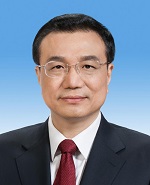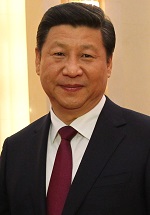 |
| Li Keqiang |
China Premier Li Keqiang said the government will lift price controls on pharmaceuticals, which would mark a dramatic change of tack in efforts to both widen access to medicines from the cities into the countryside while keeping spending in check.
Li announced the decision in his annual government work report plan that opens the annual two-week National People's Conference, a legislative body that nominally advises the Communist Party-run government on broad policy aims.
The report did not disclose details or a timeline. The disclosure is part of a broad statement on China's intention to eventually lift price controls and give market forces a greater role in its economy.
"In principle, we will lift pricing controls over all goods and services that can viably compete in markets," it said. "The government will stop setting prices for most pharmaceuticals and delegate to lower-level governments the power to set prices for certain basic public services."
 |
| Xi Jinping |
China wants to develop the domestic pharmaceutical industry through stronger regulatory measures and has moved in the past two years of the government of Xi Jinping to form a China FDA based on a U.S. model that has issued mandatory requirements to be certified in good manufacturing practices and similar rules aimed at overcoming widespread public concern, and anger, about product safety.
At the same time however, the government also aims to control drug spending through price caps and profit-margin regulations to guarantee access even for poor patients, distorting market incentives that some analysts say lead to safety lapses and inappropriate prescriptions.
Pharmaceuticals account for about half of total health spending in China, representing 43% of spending per inpatient episode and 51% of spending per outpatient visit, according to government figures.
Analysts also say the move is part of a broader drug reform in which the government plans to sell drugs online, shaking up the procurement system entirely and creating a more transparent system.
The aim is to solve problems that have plagued hospital pharmacies. Drug sales make up more than 80% of hospital revenue, according to consulting firm Bain & Co.
- here's the report from the NPC